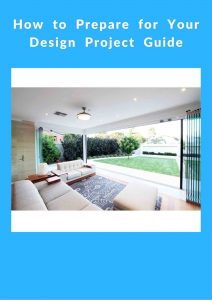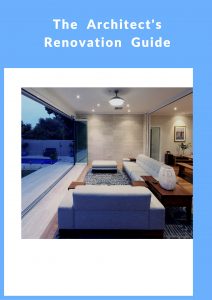
Buying a Home to Renovate
Important Things To Consider Before Buying
If you are looking at buying a home to extend or renovate there are a few things you should consider. For example:
-
- Does the floor plan of the house suit your needs? If not can it be altered to accommodate your needs and how much is it going to cost?
-
- Does the house have potential for improvement?
-
- Does the house look like it could be passively heated and cooled? It’s important that a house has good orientation or that it can be easily adapted for better orientation.
-
- Do the main living areas face north? North facing living spaces with good access to winter sun are ideal.
-
- Are outdoor living areas such as courtyards, verandahs and balconies private and do they have access to winter sun? Can they be suitably shaded during the summer months?
-
- Open plan internal layouts provide better natural ventilation throughout the home. Generally, narrow, long houses have better passive cooling qualities. Ideally the long elevation should open up to cooling breezes.
-
- Houses with large exposed areas of west and east facing windows receive the strongest radiation during the summer months and are potentially going to consume more energy with regards to cooling.
-
- Is it possible to prune existing vegetation around the house to allow cooling summer breezes and winter sun to penetrate into the home?
Have a Wish List
Before renovating an existing home, prioritise and establish a wish list of the things you want to achieve with the renovation.
For example, this can include qualities such as “light and airy", as well as more specific outcomes such as extra living space, a bigger and better functioning kitchen, or a new bathroom.
A Residential Design Architect Can Save You Money With Renovations
With good design it’s sometimes possible to achieve what you want by just modifying what you already have.
Sometimes opening up a wall and re-designing the existing interior, rather than extending up or out can often provide the best use of space.
Check if the living areas face the right way in order to take advantage of the winter sun and the cooling summer breezes.
It’s possible to change the orientation of a house when renovating simply by swapping room uses from one side of the house to another.
This can also provide an alternative solution to extending the house, which will save on building and future running and maintenance costs.
When designing a renovation, it’s critical to maximise the amount of daytime living space that faces north.
If the renovation involves demolishing sections of your existing house, your architect can advise you on incorporating the re-use of existing building materials.
For example, windows, doors, floorboards and interior fixtures and fittings could be used in the new design, which can save you money.
Extending
When buying a house that you want to extend in the future, it's important to look at the property and how it sits on the block.
If you plan to extend the house you need to make sure that there is enough space on the block to add to the existing home.
To do this you will need to check the zoning and open space requirements of the property with the local council. Having an understanding of council regulations and the Residential Design Codes of Western Australia is also essential.
This will give you a better idea as to how close you can build to the boundaries.
If the property is an older home it may have heritage significance. If it does, there may be restrictions and special requirements regarding any extensions you may want to do to the home.
The local council will be able to tell you if the property is heritage listed. This should be checked before putting an offer to buy the property.
This is a good time to get expert advice before proceeding any further.
Your architect can consult with the local council and then advise you of the restrictions and how they may affect your plans for the home.
If they are going to severely limit what you are intending to do to the home, it may be better to walk away and look at purchasing another property.
Alternatively, if the restrictions are manageable, your architect will be able to advise you of all the possibilities.
You will then be able to decide if the property is worth buying or not.
Good Design Adds Value
With renovations it’s easy to focus on the short term, “what can we afford right now?”
However with good design that enhances resale value, improves comfort and reduces energy bills, it’s worth paying a Registered Architect that specialises in residential design to design your extension or renovation.
Energy efficient, sustainable homes are rapidly increasing in value due to their greater comfort levels and lower running costs.
Perth Home Design Guides
We have developed these unique home design guides for people wanting to build their perfect dream home. These guides were developed as a result of 30 years of expertise and experience designing new homes as well as extensions and renovations for clients all over the Perth metropolitan area.
Please feel free to download the guides.


